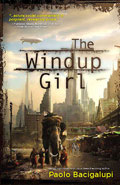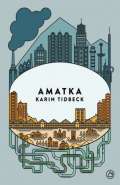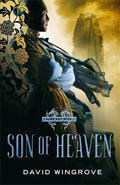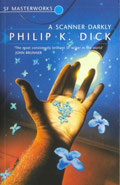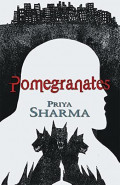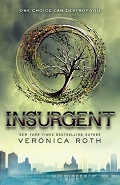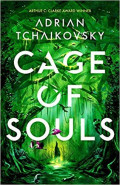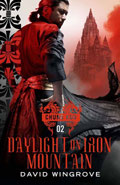Annie Bot
By Sierra Greer
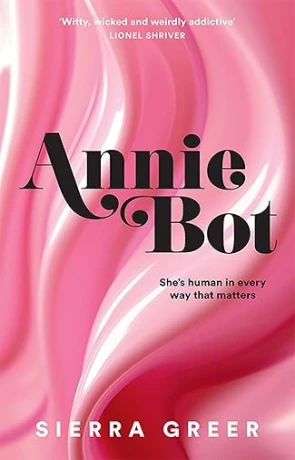
- Annie Bot
-
Author: Sierra Greer
-
Publisher: The Borough Press
- ISBN: 978-0008584566
- Published: March 2024
- Pages: 240
- Format reviewed: Paperback
- Review date: 12/07/2025
- Language: English
I picked this book up after learning about it being short-listed and eventually winning the Arthur C Clarke Award. It's proof of not judging a book by its cover because I'd have completely passed it by sitting on a table, with its shockingly bright pink swirlyness and quote by Sheena Patel that says "Barbie for girls who like Aphex Twin". I've never watched Barbie (although I understand it's a well-made film), have no idea who Aphex Twin is, and I don't identify as a girl. I'd like to think I would still have picked it up at some point, though. It was a "Times Book of the Month", and won the Arthur C Clarke against some pretty terrific competition - The Ministry of Time (Kaliane Bradley), Service Model (Adrian Tchaikovsky), Extremophile (Ian Green), Thirteen Ways to Kill Lulabelle Rock (Maud Woolf) and Private Rites (Julia Armfield) are all damn fine reads, a couple I'd even go as far to call exceptional. It's also proof that awards like the Arthur C Clarke have a direct impact on book sales (I picked a couple of the others after learning they'd been shortlisted).
Anyway, Annie Bot, as you might guess, is a robot, designed to be the perfect girlfriend (or more accurately, slave) for Doug. She cooks his dinner every night, wears the outfits he buys her and caters to his every sexual whim. Of course, it wouldn't be much of a story if that's all that happened, and you can probably tell what's coming next - she begins to question her servitude, to rebel against her stifled existence. She even begins to imagine the impossible - what would it feel like to live without Doug? Different functions require different types of AI. To be such a "cuddle bunny" (a euphemism for sex-bot), the robot needs to switch over to an "autodidactic" mode, which gives the AI more "free will" to learn and adapt. Then, Annie starts to learn, adapt and question the world around her.
The writing style reminds me of Philip K Dick, it's got that matter-of-fact tone that renders the ordinary quite interesting that he used for many of his works. It also feels old-fashioned, certainly in the way that Annie is brazenly depicted as a sex object, misogyny still a very real problem, pervasive in the overall tone that sets men as real men and women as objects of desire. Freeing real women from the drudgery of being a housewife has simply meant that the robot women now bear that burden. People are quite open and frank about these robots being objects, to switch on and off, or upgrade as desired. Are they right though? When AI / a robot sounds and acts like a real person, are they getting as intelligent as us, or are they simply getting better at providing responses we expect to hear? Where does the simulated response stop and real intelligence begin? That's an issue we see right now. AI has been getting better at providing a human-like response, but does that make them smart (not yet, is my answer)?
In an age of rising AI, as it begins to invade our everyday lives, it is a timely question. Currently, I'm trialling AI software, partly to see how it can help our productivity at work. Meanwhile, AI chips are being embedded into otherwise everyday devices. Computers and phones are the most obvious examples, but AI chips are also becoming embedded into hearing aids and other wearable technology. AI chatbots promise to become your digital friend. That of course is one of the big themes in the book. Are we right to treat these robots as objects, or should they be seen as another form of intelligence and given the same rights and privileges as us (let's not get started about the idea of rights being decided based on perceived similar intelligence to ourselves)? What does it mean to be human? Does it matter if we are made of flesh or robotic parts?
That brings us to another of the book's themes: loneliness. Despite being connected more than we ever have been, able to instantly converse with people around the world, join groups on social media platforms and view many people doing many things on media channels, loneliness is becoming a very real problem. We are still social creatures; we often thrive in the company of others, but that doesn't extend the same to online social activities in the same way. It still isn't a replacement for real social contact. But at the same time, forms of real connections with other humans are being stripped away. There are fewer social clubs for a start, and late-stage capitalism (at least in Western societies) means that our disposable income is squeezed ever tighter (got to think of the shareholders). You can see this quite profoundly in the UK with a rise in food banks and a remarked decline in Pubs and restaurants. Fewer clubs, along with fewer chances of socialising in other places. That extends to places where we'd otherwise expect to see at least a little social interaction, such as shops. The rise of self-scanning checkouts means that supermarkets (and other shops) can keep that share of the money they'd otherwise pay staff and make us scan our purchases instead (and yet offer no discount to do so). More money for them, less social interaction for us. That was something I was made aware of just last week. The local Tesco had only one checkout operator (who was inundated) and lots of self-checkouts. Standing, waiting to be served and a Tesco staff member was trying to get people to use the self-scanning. That led to a conversation with the person behind me, as I remarked on the loss of jobs (and greater profit) while he remarked that he missed the social interaction if he didn't queue at a real checkout. A result of all this progress is that people can go days without actually speaking to another real person. Given that clubs and pubs used to be the most likely places to meet romantic interests, I imagine it must be a lot harder to get real, genuine connections in a digital world, too, despite the many social dating apps.
You can easily imagine someone like Doug, perhaps driven by such loneliness, forming a romantic attachment with a robot, and of course, that's what happens. Relationships, healthy and unhealthy, are another big theme. Although to be honest, it's often describing an awareness of unhealthy relationships. Doug is controlling, misogynistic, at times toxic and other times abusive, making for some uncomfortable reading. You feel for Annie being trapped in such a situation. That also makes you question whether any intelligent (or more importantly, possibly emerging sentient) thing should be treated this way. Robots in relationships are not new ground, nor is emerging AI, but Greer is just using these devices as a setting to explore the themes they want to good effect.
I guess the 1100+ words written above give some indication as to why Annie Bot was chosen as the winner of the Arthur C Clarke Award. It's one of those books that seems simple and yet conveys some timely and important messages. It does so in a way that some of the finest writers of the genre have done. Thoughtfully, considered and without judgement. The irony that the quote on the cover says it's for girls, and yet the book quietly speaks volumes about sexism, is not lost on me. It is, however, an important book for our time, whether or not you like Barbie, Aphex Twin (still don't know who that is), or identify as a girl, boy or even inorganic sentient entity.
Written on 12th July 2025 by Ant .

